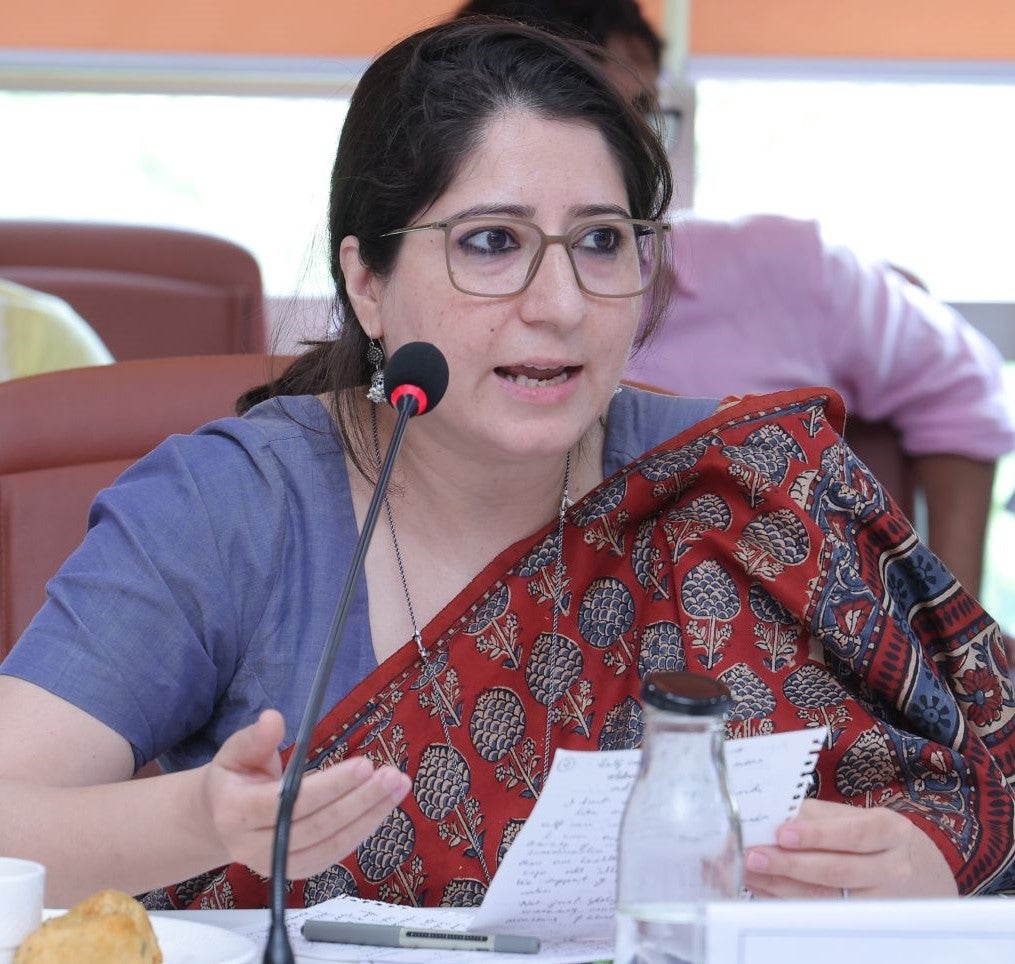Alumni Spotlight: Dr. Nandita Bhan

Dr. Nandita Bhan completed her Doctor of Science (ScD) from the Department of Social and Behavioral Science, Harvard T.H. Chan School of Public Health in 2013. She currently works as Professor and Vice Dean (Academic Affairs) at the Jindal School of Public Health (JSPH) at O.P. Jindal Global University (JGU). She is a social epidemiologist by training, with degrees in Public Health and Social and Behavioural Sciences from Harvard University, University College London, and Delhi University. She has previously worked with the Center on Gender Equity and Health (GEH) at UC San Diego and the Public Health Foundation of India (PHFI).
Dr. Bhan’s work uses a life course perspective while focusing on social inequalities, particularly the role of gender equality and the social, behavioral and structural determinants of health and well-being. She has worked on research and capacity-building on gender and sexual and reproductive health for field-based program monitoring and evaluation, with a particular interest in issues of adolescent agency and in addressing measurement and data gaps in gender empowerment. Her research and teaching emphasize the use of both quantitative and qualitative methodologies to improve the measurement of health and well-being, urbanization, and behavior change interventions in low and middle-income countries.
How would you describe your experience at the Harvard T.H. Chan School of Public Health?
My time at the Harvard Chan School was very formative in my training and in setting the foundation for my research career. Initially, it was a bit overwhelming as I had studied in India and the UK, and the academic culture was new. Once that was settled, I could identify my own learning goals and begin to pursue and build my learning portfolio. The engagements and mentorship I received from my advisor Dr. Subramanian and the faculty were extraordinary. I spent a summer in São Paulo during my early doctoral years, and that comparative perspective was very sobering. I moved back in 2013, as I felt that my work might be more impactful here. Now, as a faculty and mentor myself, I often look back at my own experiences and try to draw key learnings from them to build the next generation of researchers and public health practitioners in India.
What was the most valuable takeaway from your time at the Harvard T.H. Chan School of Public Health?
Being at the Harvard Chan School teaches you about excellence, and there is no doubt that this is what being at Harvard is all about. However, it is also about the pursuit of that excellence with a passion and a commitment to change. Meeting faculty, students and all interactions further instil that the commitment to rigour in all that we do, the passion for creating change and impact in the communities and areas that we work in, and the learning that happens from all those interactions. My research in gender equity in India and across LMICs has always tried to retain that desire for impact while pursuing excellence in methods.
What would you advise others who are interested?
Many student are very clear about their academic journey or path in public health, and many are still exploring. The Harvard Chan School is the perfect place for both types of students to find and forge their path for learning, and those who want to dabble and work summers with faculty and figure out what drives them. The faculty, obviously is exceptional, but I would say that what matters is mentorship, so try to find someone who cares about your academic journey. Also, while at the Harvard Chan School, it is important to find a community of friends or engagements like music or cinema that can help students unwind, as self-care is very critical to the academic journey.
What public health challenge are you currently working on and most passionate about?
My work primarily focuses on women’s empowerment, specifically women’s autonomy in areas related to sexual and reproductive health, women’s access to healthcare and insurance, women’s burden of non-communicable diseases and gender norms. I think gender equality is one of the biggest issues we face today and one that I care about the most, not only as a woman myself, but because millions of women continue to not have a voice or choice in matters related to their bodies, their health and have no control on choices related to their education, marriage, work, and essentially life. Women continue to bear the lion’s share of the burden of domestic work as well as childcare. They lose out daily in the labour market, in promotions, in matters of wage equality, and are treated as second citizens in the labour market. The system that runs this, in collusion with men and women, is patriarchy, and I care about breaking that cycle in solidarity with gender scholars around the world, as it matters for women’s health as well as their rights.
What are some of the biggest public health challenges you foresee in the next decade, and how do you think we should prepare for them?
Other than gender equality, or the lack of it that stares at us every day, and is one of the biggest challenges we face today, another issue we cannot ignore is climate. This issue also needs a gender lens, as so far the narrative patronises women and children as the usual victims and does not consider their contribution or the impacts they face as a result of this crisis. One of the ways scholars can contribute is through generating evidence and with the help of donors in designing and collecting data that can meaningfully contribute to the discourse nationally and globally, and that can provide pathways to impact for change.